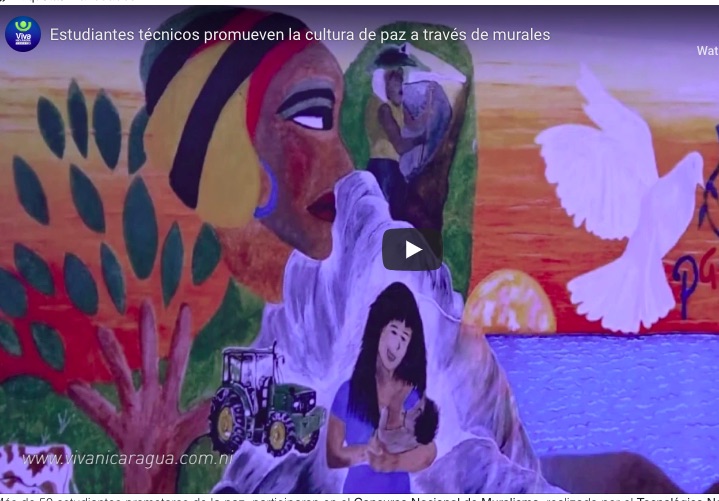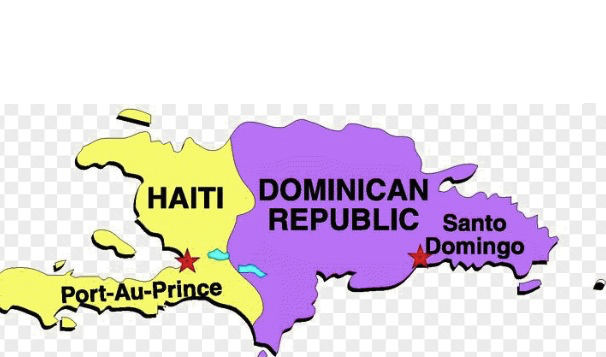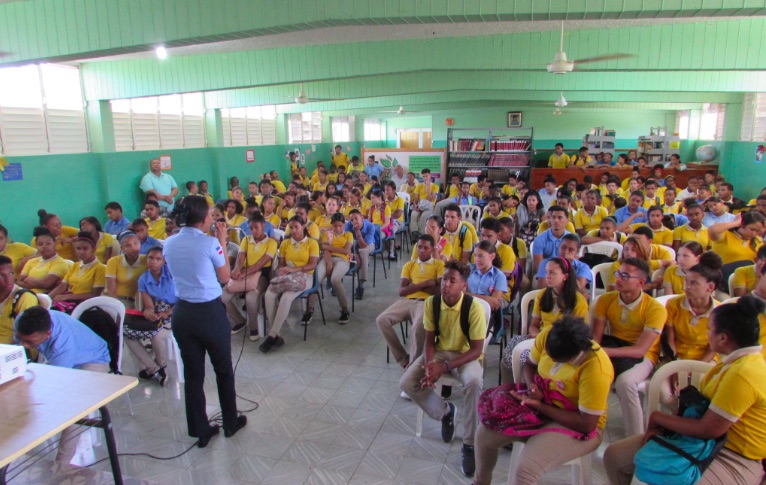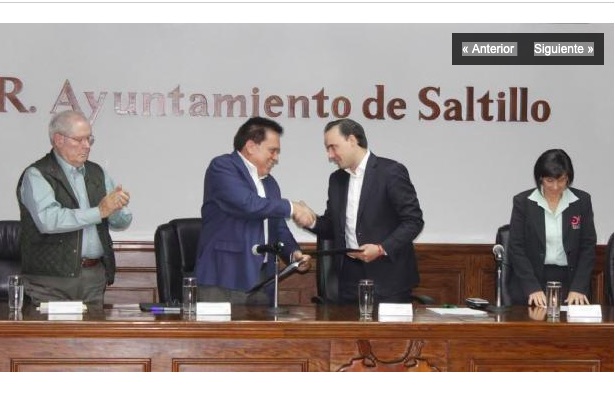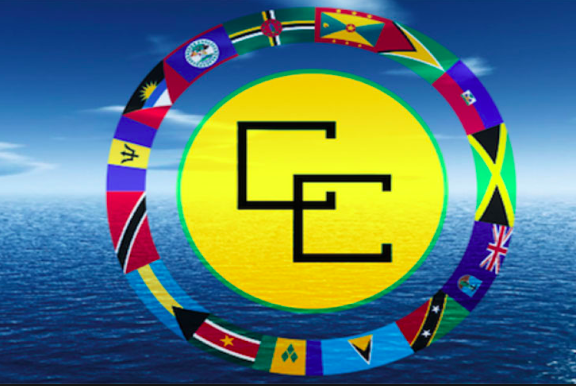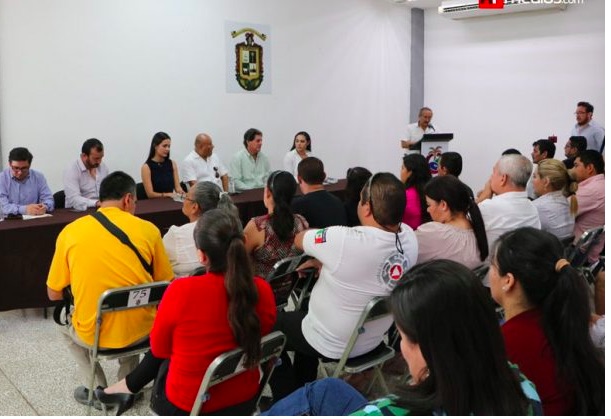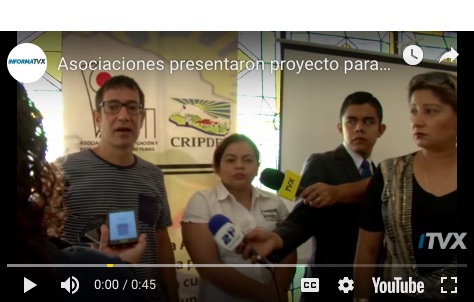. .DISARMAMENT & SECURITY. .
An article by David Comissiong from Barbados Today
The Association of Caribbean States (ACS)—a multilateral organisation that the Caribbean Community (CARICOM) conceptualized and helped bring into existence some 25 years ago – concluded its eighth Heads of Government Summit in Managua, Nicaragua on the 29th of March 2019, with the adoption of the historic “Declaration of Managua” and the confirmation of a visionary three-year “Plan of Action”.
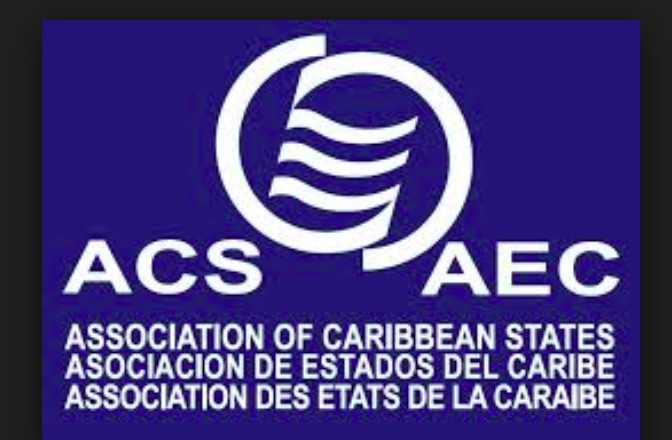
The 25 Member States of the ACS – 14 CARICOM nations, along with Cuba, Dominican Republic, Venezuela, Colombia, Mexico, Costa Rica, El Salvador, Guatemala, Honduras, Nicaragua and Panama – sent the world a most remarkable message of hope and commitment to human solidarity with their “Declaration of Managua” affirmations on such critical issues as climate change, respect for the fundamental principles of International Law, the maintenance of the Greater Caribbean as a “Zone of Peace”, and the payment of reparations for the crimes of native genocide and African enslavement.
[Editor’s note: According to Wikipedia there are15 members of CARICOM: Antigua & Barbuda, Belize, Commonwealth of Dominica, Grenada, Republic of Haiti, Montserrat, Federation of St. Kitts & Nevis, St. Lucia, St. Vincent & the Grenadines, Commonwealth of the Bahamas, Barbados, Co-operative Republic of Guyana, Jamaica, Republic of Suriname, Republic of Trinidad and Tobago.]
It is noteworthy that the delegation heads of such countries as Cuba (President Miguel Diaz-Canel), Nicaragua (President Daniel Ortega), El Salvador (President Salvador Sanchez Ceren), Venezuela (Vice-President Aristobulo Isturiz), Trinidad & Tobago (Minister Dennis Moses), Barbados (Minister Jerome Walcott), Grenada (Minister Peter David), St. Lucia (Minister Sarah Flood-Beaubrun), Suriname (Minister Yldiz Pollack-Beighle), and Guyana (Ambassador Halim Majeed) were able to join together with the delegation heads of such “Lima Group” nations as Colombia, Costa Rica, Panama, Guatemala and Honduras to declare – at paragraph 22 of the Declaration of Managua—that they “reject the application of coercive unilateral measures that are contrary to international law, and that harm the peace and prosperity of the Greater Caribbean”.
(continued in right column)
Question for this article:
Can peace be maintained in the Caribbean region?
(continued from left column)
Other quite remarkable affirmations contained in the Declaration of Managua are as follows:-
“Agrees to unite efforts to face global climate change with a view to positioning the countries of the Greater Caribbean at the forefront of international efforts to limit global warming to 1.5 degrees Celsius.” (Para.8)
“Recognises the multifaceted and stratified threats that the Greater Caribbean faces… to achieve sustainable development, and the imperative to strengthen coordination and cooperation within the ACS to deal with… the unilateral listing of uncooperative fiscal jurisdictions and the practice by banks in developed countries to engage in risk reduction activities (de-risking) that result in the decline in relations with corresponding banks for the countries of the Greater Caribbean.” (Para. 17)
“Reiterates our commitment and unconditional respect for the goals and principles of the United Nations Charter and the principles of International Law, to maintain international peace and security, the promotion of friendly relations between states, international cooperation in solving problems, the Sovereign Equality of states… the peaceful resolution of disputes, the prohibition of the use or threat of use of force against the territorial integrity or political independence of any state and the non-interference in their domestic affairs, as essential requirements for preserving the Greater Caribbean as a Zone of Peace and cooperation, in accordance with the Proclamation of Latin America and the Caribbean as a Zone of Peace.” (Para. 21)
“Supports the 10-point Action Plan of the Reparations Commission of the Caribbean Community (CARICOM) and applauds this Commission’s efforts to correct injustices resulting from the genocide of the native people of the Caribbean and the transatlantic trafficking of enslaved Africans and slavery, which are counted amongst the most atrocious crimes against humanity, and reaffirming, in turn, the urgent need to request efficient measures for reparation, compensation, indemnification or other in kind measures at a national, regional and international level.” (Para. 28)
The adoption in Managua of the “2019—2021 Plan of Action” also reconfirmed the tremendous foresight manifested way back in 1992 by Sir Shridath Ramphal and his fellow Commissioners of the “West Indian Commission”, when they proposed that CARICOM take the initiative to establish a Caribbean Basin-wide “Association of Caribbean States” as a mechanism for a broader and more extensive “Greater Caribbean” circle of functional cooperation.
The ACS “2019-2021 Plan of Action” constitutes a blueprint for a range of valuable initiatives and projects in the spheres of Sustainable Tourism, Regional Trade and External Economic Relations, Regional Air and Maritime Transportation, Regional Disaster Risk Reduction, matters pertaining to the Caribbean Sea, and initiatives in the fields of Culture, Education and Sports.
The triennial Plan of Action is extremely wide-ranging, and it will now be left up to the Executive Board of the ACS’ Ministerial Council, under the Chairmanship of Barbados, to confer with ACS Secretary General Dr June Soomer, and other officers of the ACS Secretariat located in Trinidad & Tobago, to establish priority projects and implementation modalities.
The ACS will be celebrating its 25th anniversary on the 24th of July 2019, and in his remarks to the assembled Heads of Government at the Summit, the incoming Chairman of the governing Ministerial Council, Dr the Hon. Jerome Walcott of Barbados, urged all ACS Member States and Associated Member States to undertake celebrations of the “silver anniversary” that are thoughtfully designed to forcefully bring the existence and achievements of the ACS to the attention and consciousness of the masses of people throughout our region of the Greater Caribbean.
